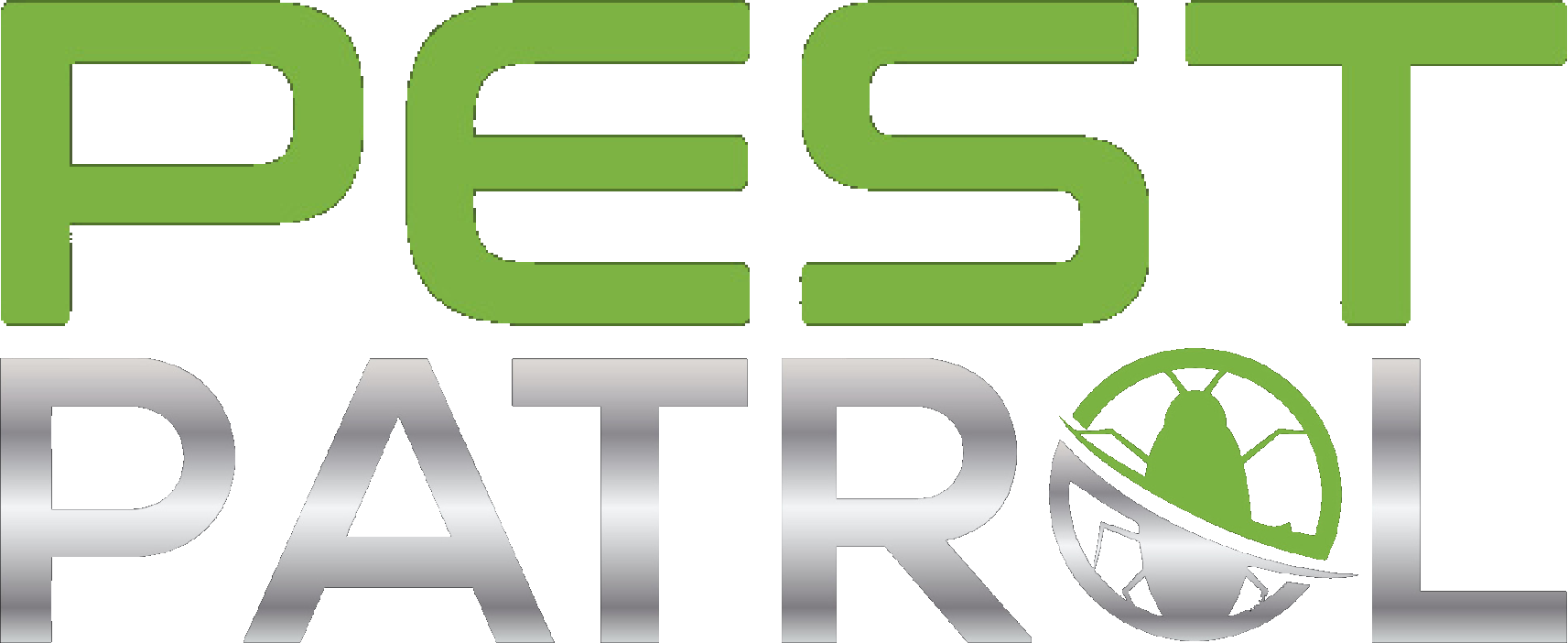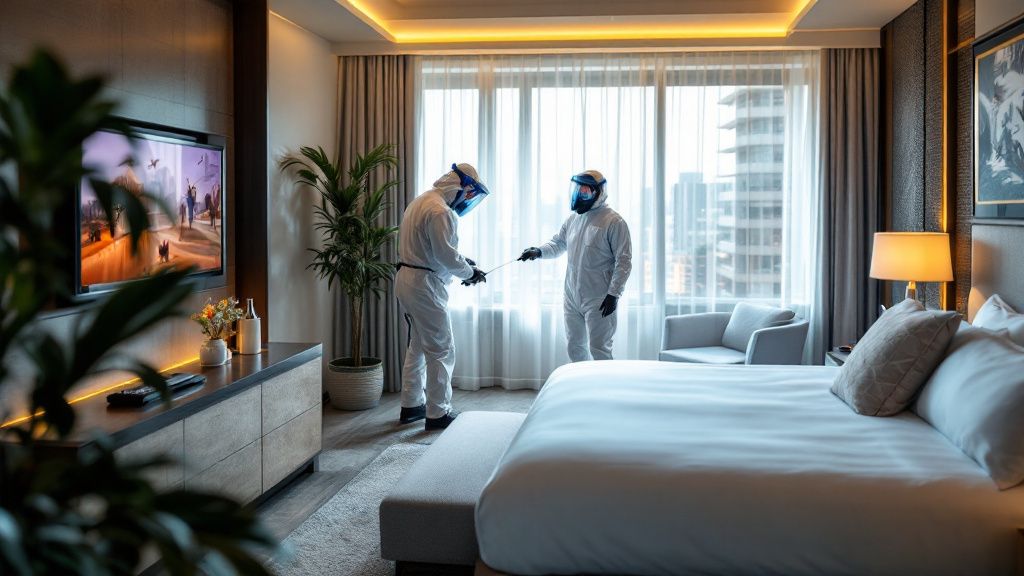In the evolving landscape of the hospitality industry, innovative pest control methods have become essential to ensuring a pest-free guest experience. As an integral part of hospitality pest solutions, advanced commercial pest control now leverages technology and eco-friendly tactics to combat infestations effectively. You might notice that contemporary strategies such as integrated pest management emphasize long-term prevention by combining biological, cultural, and chemical controls, enhancing pest prevention strategies. For hotels and resorts, specialized pest management services like bed bug extermination and rodent control in hospitality offer tailored solutions to unique challenges. The adaptation of pest monitoring systems and pest inspections plays a pivotal role in tourism pest control, helping to maintain the high standards required for pest control compliance. Additionally, staff training and the use of modern pest control equipment are crucial in implementing effective pest sanitation practices. Each innovative approach—from pest risk assessments in restaurants to pest control audits in event venues—contributes to the seamless operation of hospitality venues, underscoring the importance of robust pest control contracts and safety protocols.
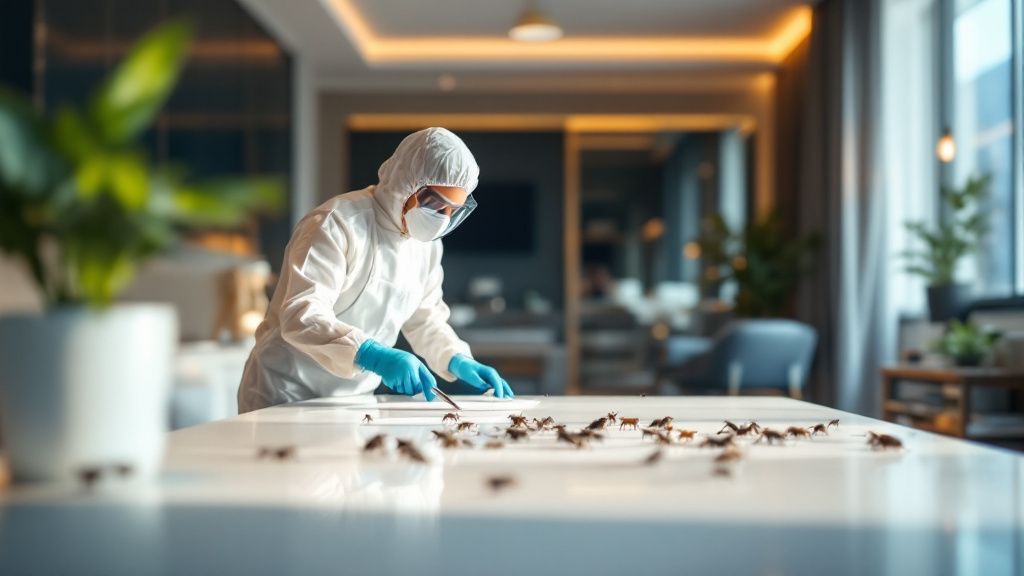
Understanding the Importance of Pest Control in Hospitality
In the hospitality sector, effective pest control is vital in maintaining both reputation and health standards. With pests posing significant risks to guest satisfaction and safety, you must adopt robust pest management services. Hotel pest control and pest control for restaurants often focus on preventing infestations through strategic pest prevention strategies. These proactive measures ensure that potential issues are identified and addressed promptly, reducing the risk to your establishment.
According to recent studies, modern integrated pest management techniques significantly reduce pest infestations in hospitality settings by using a combination of sustainable methods. By understanding these scientific principles, you can implement hotel and restaurant pest control strategies that are both eco-friendly and efficient. This balanced approach protects the environment while effectively managing pest populations.
Incorporating pest control audits and rigorous pest inspections, you ensure compliance with industry standards. Pest control for resorts, vacation rentals, and additional venues like bed and breakfasts requires attention to detail and adherence to specific pest control safety protocols. Implementing comprehensive pest sanitation practices helps maintain hygiene and keeps guests safe.
By investing in pest control training and equipment, hospitality establishments can equip their staff with the tools and knowledge needed for effective pest risk assessment. As a result, you can foster a pest-free environment and enhance the overall guest experience, strengthening your establishment’s reputation in the competitive tourism industry.
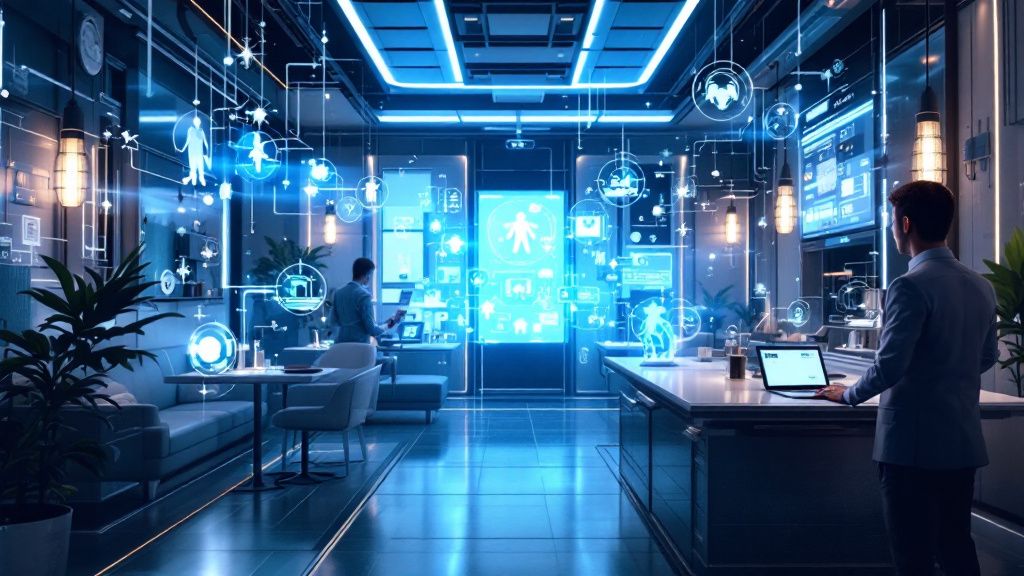
Emerging Technologies in Hospitality Pest Management
In the hospitality industry, emerging technologies are reshaping how you approach pest management with precision and effectiveness. Advanced pest monitoring systems and automated pest inspections are at the forefront, offering real-time data and insights to prevent infestations. Technologies like smart traps and sensors in hotel pest control and pest control for restaurants provide a new level of oversight, ensuring that issues are detected early and pest-free environments are maintained.
Comparing traditional pest management approaches to these cutting-edge technologies highlights significant differences in efficiency and impact. While conventional methods often rely on periodic manual inspections, digital solutions enable continuous monitoring and quicker responses. By embracing these advancements, you can enhance commercial pest control practices and facilitate a more adaptive, integrated pest management system tailored to hospitality needs.
As eco-friendly pest control solutions advance, you benefit from reduced reliance on chemicals, aligning with sustainable tourism goals. Pest control equipment like UV light traps and biological control agents offer non-toxic alternatives for rodent control in hospitality settings. The integration of such technologies into pest management services not only enhances pest control safety protocols but also supports pest control compliance across various hospitality venues, ensuring a consistently high standard of hygiene and guest satisfaction.

Eco-Friendly Approaches Gaining Popularity
In the realm of commercial pest control, eco-friendly approaches are increasingly embraced for their sustainable and health-conscious benefits. These methods prioritize the health of guests and staff while maintaining high standards in hospitality pest solutions. Using natural repellents and biological controls not only minimizes environmental impact but also aligns with the global shift towards greener practices. Hospitality venues such as hotels and resorts are now adopting eco-friendly pest management services as part of their standard operating procedures to ensure a pest-free guest experience.
One of the significant challenges in pest control is achieving effective results without harming the environment. Traditional chemical treatments can have adverse effects, creating a need for solutions like integrated pest management (IPM) that combine non-toxic techniques. This issue can be addressed through innovative methods like pheromone traps and essential oils, which provide reliable alternatives for bed bug extermination and rodent control in hospitality settings. These eco-conscious strategies not only support tourism pest control compliance but also enhance pest prevention strategies within diverse hospitality venues such as restaurants, bed and breakfasts, and event centers.
Eco-friendly pest control options offer long-term sustainability, reducing the reliance on harsh chemicals. Embracing such methods requires robust pest prevention tactics and a commitment to pest control compliance through rigorous pest monitoring systems and pest control audits. When paired with thorough pest control training, these approaches ensure safe yet effective management of pest infestations, maintaining the hygiene standards critical for guest satisfaction. As the trend towards environmentally responsible pest management grows, more establishments see the benefits of incorporating eco-friendly pest control equipment and solutions into their operations. This not only enhances the safety protocols in pest control for vacation rentals and cafeterias but also positions these venues as leaders in sustainable hospitality practices.

Integrated Pest Management Strategies
Integrated pest management (IPM) strategies are transforming the landscape of pest control in the hospitality industry. By focusing on preventing pest infestations and reducing the need for chemical interventions, IPM utilizes a mix of biological, cultural, and physical controls. This approach ensures long-term effectiveness, adapting to pest pressures unique to hotels and resorts, while offering tailored pest solutions for diverse venues such as restaurants and event venues.
In the next few years, integrated pest management is likely to become the standard for commercial pest control thanks to its focus on sustainability and efficiency. As hospitality establishments strive for pest-free environments, IPM will gain traction due to its environmental advantages and its ability to meet pest control compliance standards. This shift towards IPM aligns with broader eco-friendly pest control movements, appealing to both guests’ and industry demands.
IPM also relies on regular pest inspections and robust pest monitoring systems to detect early signs of infestations. By incorporating pest risk assessments and comprehensive pest control training, hospitality venues enhance their readiness to manage diverse challenges. As a result, IPM strategies ensure that you uphold the highest safety protocols and sanitation practices, guarding the reputation of your establishments and ensuring guest satisfaction.

Training and Empowerment of Staff
In the hospitality industry, training and empowerment of staff play a crucial role in effective pest control management. By providing comprehensive pest control training, you ensure that your team is equipped with the knowledge and skills necessary to identify and tackle potential issues. This preparedness contributes significantly to the overall success of commercial pest control, reinforcing pest safety protocols and enhancing the pest-free guest experience.
For example, a leading hotel chain implemented a robust training program centered on integrated pest management strategies. Staff were educated on eco-friendly pest control techniques and the use of advanced pest control equipment. This initiative empowered employees to conduct thorough pest inspections and effectively manage pest infestations in hospitality settings, elevating the chain’s reputation for cleanliness and attention to detail.
Empowering staff also includes training on specific pest management services tailored to different hospitality venues. Whether for pest control in restaurants or pest control for resorts and vacation rentals, knowledgeable staff can apply targeted hospitality pest solutions. This ensures compliance with pest control standards, supporting pest sanitation practices and reducing the likelihood of contract breaches through informed action.
A well-trained staff acts as a proactive line of defense against pest risks. With skills in pest monitoring systems and conducting pest risk assessments, employees are capable of alerting management to potential issues promptly. Their empowerment facilitates the maintenance of high hygiene standards, essential in pest control for bed and breakfasts, cafeterias, and event venues alike.
By investing in staff training and empowerment, you not only enhance operational efficiency but also foster an environment where everyone contributes to a culture of safety and excellence. This approach leads to sustainable pest management and ultimately benefits the entire hospitality landscape by protecting both guests and the establishment’s brand integrity.
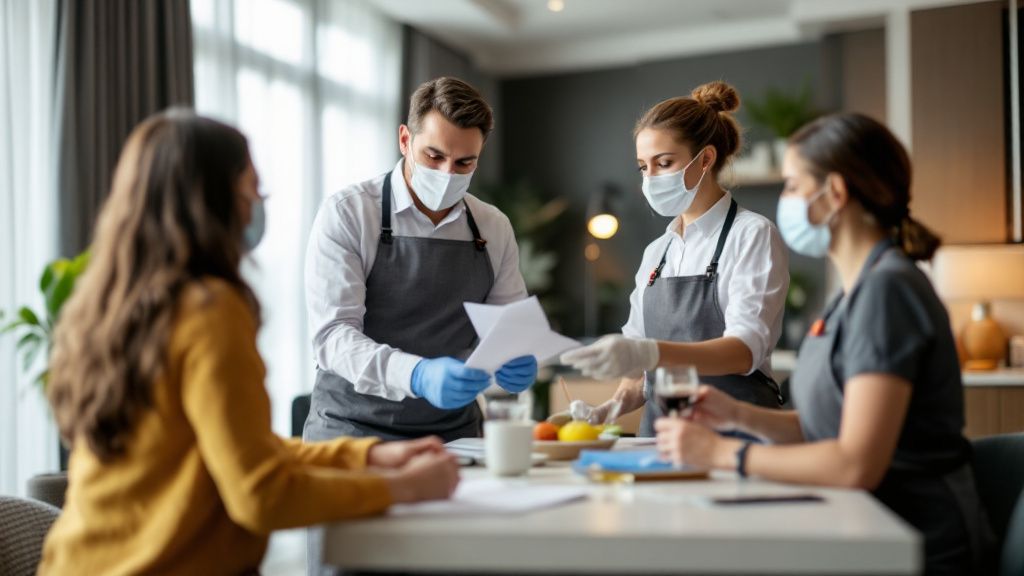
Guest Education and Communication Strategies
How does effective guest education impact the overall experience in hospitality? By fostering open communication with guests, you can ensure transparency and trust, essential elements for a positive guest experience. Educating guests about the importance of commercial pest control and pest management services helps them understand the measures taken to maintain a safe environment. Knowledge about integrated pest management strategies also reassures guests of the steps taken to prevent pest infestations.
Guest education can take various forms, from informative brochures in hotel rooms to personalized tours highlighting pest sanitation practices. For instance, in a resort setting, explaining eco-friendly pest control methods demonstrates a commitment to sustainability. This approach not only enhances the guest experience but also positions your establishment as a responsible leader in tourism pest control, valuing both guest safety and environmental stewardship.
Effective communication strategies include providing guests with information on the proactive measures in place, such as routine pest inspections and pest control compliance audits. Transparency about pest prevention strategies builds confidence in the hospitality services being offered. When guests are informed of rodent control efforts or bed bug extermination methods, it empowers them to engage with the facility’s pest-free goals.
In addition to passive education efforts, active communication channels, such as digital apps or a dedicated guest hotline, can further engage guests and address their concerns expediently. By involving guests in pest risk assessments and seeking feedback, you create a collaborative approach to maintaining a safe and pleasant environment. Engaged guests are more likely to become advocates for the venue, enhancing its reputation.
Ultimately, guest education and communication strategies support the broader goals of hospitality pest solutions. They provide ongoing reassurance while emphasizing your commitment to a pest-free guest experience. This creates a dialogue that not only informs but also engages and empowers guests, enriching their overall experience and fostering a sense of security and satisfaction.
